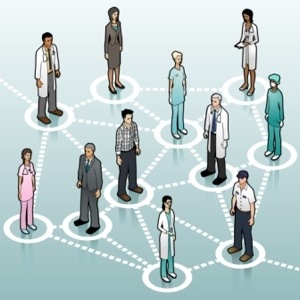Learning to work ON the system.
Guest post by Krishan Y.
I am currently at the midpoint of a five-year RCPSC residency specializing in emergency medicine. I’d like to briefly share my experience to date as a medical resident in Canada. The major focus encompasses gaining valuable experience providing high quality patient care, often by working long hours. The best learning typically comes in the clinical setting. ED shifts are always busy yet with a vast array of medicine to ensure there are always learning opportunities. I meet patients from all walks of life, with issues ranging from relatively minor to life threatening. One of the many reasons I entered the specialty was the team environment – working with your colleagues towards a common goal.
Every week there is dedicated teaching to ensure that we become competent and highly skilled consultants in EM. The sole focus has been on learning as much as possible so that I can confidently treat my patients in accordance with the highest standards. Along the way, I’ve gotten to know many colleagues and have continued to refine my own personal approach to communicating with patients and coworkers. Somewhere in the mix, I make time for family and friends. I do my best to maintain a healthy, balanced lifestyle.
In short, what I envisioned as a resident training in a specialty is that at the end of 5 years of rigorous education and clinical experience, I would develop the skills and competence to independently provide high quality care for my patients. Yet there have been calls to reexamine postgraduate medical training in order to groom clinical leaders in a structured and evidence-based manner.[1]
Dr. W. Edwards Deming: “Workers work in the system. Leaders work on the system.”
Over the last two weeks, my colleagues and have engaged in a novel course on the Administration and Business of Emergency Medicine. The quote above by Dr. Deming was one of the first things we were shown as part of an introduction to the course. At the outset, we were asked what I initially felt were fairly simple questions:
What is the role of a doctor today compared to 40 years ago? Do you consider yourself a leader?
Can you describe the Canadian Healthcare System? How does it differ to similar nations?
How does our hospital run? How is it funded? Who are the main players?
I can honestly say that I couldn’t generate a complete, well-articulated response to any single question we were asked. I couldn’t envision how I could intelligently discuss the merits and downfalls of our healthcare system. Reflecting on my first half of training in residency, the stark truth is that until this point, I had never received any type formal education on the system that I work in. The reality is that such nontherapeutic education is not a focus in medical school, and has gradually been introduced into postgraduate medical education as recently as 2008.[2]
The first half of my residency training has been about learning how to work in the system. But after two weeks of dedicated teaching regarding our healthcare system and business issues fundamental to emergency medicine, I have a much better understanding of my role and how to work on the system. I have a refreshing new perspective on how critical everyone is towards an efficient, highly functioning emergency department. This includes clerical staff, porters, laboratory services, diagnostic imaging, nurses, physicians and patients. Everyone has a fundamental role, and it gives me an even greater respect for all of my ED colleagues.
The reason why I chose to write on this topic is because I honestly believe that the importance of providing a structured and well-managed approach to a physician’s role as a leader in the healthcare system cannot be overstated. As Thoma and colleagues showed in a recent study,[3] specific leadership and administrative competencies specific to Canadian physicians are being actively developed. The role of postgraduate medical education is now evolving in the direction of not simply informing physicians that they are leaders, but is providing a well-structured template on how to achieve this lofty goal.
For the first time, I have a clear idea of how to bring about change and ways to contribute towards the continual improvement of our specialty.
I envision the latter half of my residency training will focus on the transition from a worker to a leader in emergency medicine.
Author bio: Krishan Yadav is a third year Emergency Medicine resident training in Ottawa. His interests include EM research and religiously following Arsenal FC.
References:
1. Gillam S. Teaching doctors in training about management and leadership. BMJ 2011; 343:d5672, doi:10.1136/bmj.d5672.
2. Royal College of Physicians and Surgeons. Specialty training requirements in emergency medicine. Version 1.1 February 2014. Available at: http://www.royalcollege.ca (accessed April 3, 2014).
3. Thoma B, Poitras J, Penciner R, Sherbino J, Holroyd BR, Woods RA. Administration and leadership competencies: establishment of a national consensus for emergency medicine. CJEM 2013; 15(0):1-8.


Great article Krishan. Look forward to your future works!
Great to hear about your experience with the new block. Explicit training in leadership skills are essential for the next generation of physician leaders. Do you see a role for this type of curriculum beyond Emergency Medicine?
Absolutely. This curriculum should be a standard across specialties